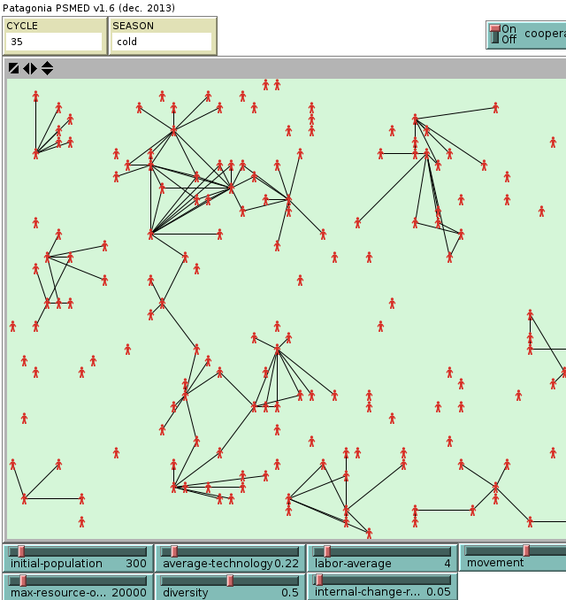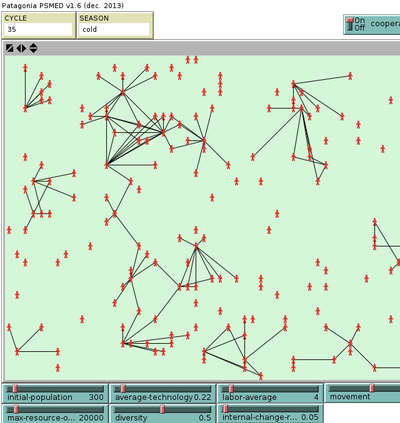PSMED - Patagonia Simple Model of Ethnic Differentiation 1.0.0
This computer simulation was developed for a research project focused in the emergence of ethnicity and cultural differentiation in hunter-gatherer groups. The existence of differences and similarities between populations has long been a major topic of investigation for historians and archaeologists, who have traditionally used material culture as a mean to identify different human groups. Today this approach is perceived as being too simplistic. However, in the absence of satisfactory models, it often continues to be assumed as valid.
PSMED is a simple model implementation to predict how hunter-gatherer societies interacted and built cultural identities as a consequence of the way they interacted while developing everyday social life actions.
In this model we are exploring the consequences that labor exchange and territorial mobility in an artificial unconstrained world has on identity formation and negotiation. To test existence and magnitude of social effects on ethnogenesis, we have imagined a world without topographical barriers, where resources are irregularly distributed across geographical space, and with a founding population having a single homogenous identity with a constant, but random, internal change rate. We explore the consequences of full random movement, when all agents (“families”) move randomly, randomly find new areas with new resources, and all areas have the same probability of producing enough surplus –but not necessary in the quantities the agent needs-. In such conditions we expect to be able to discern if cultural diversity emerge as a result of social decisions only, or if it is the result of the constraints on mobility generated by geography and the irregular distribution of resources, both in space and time.

